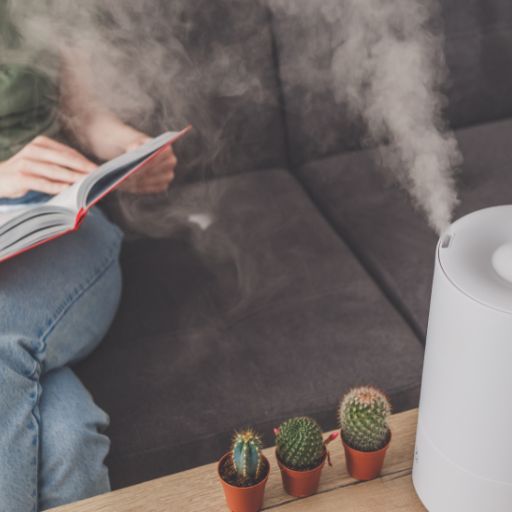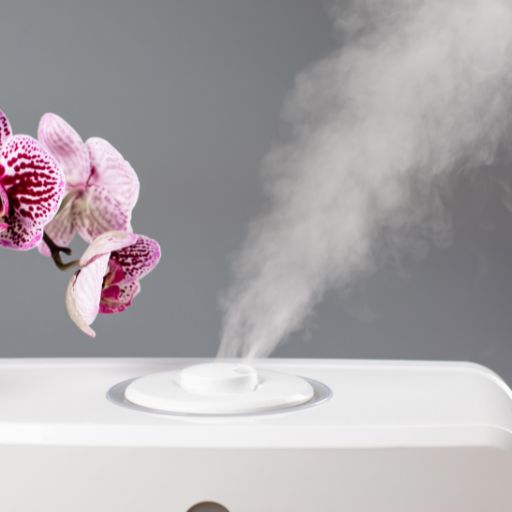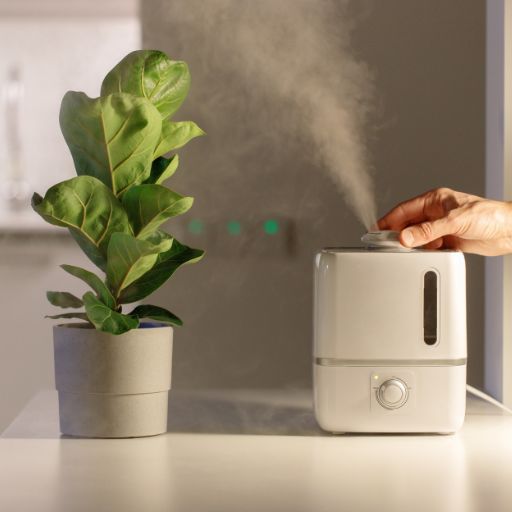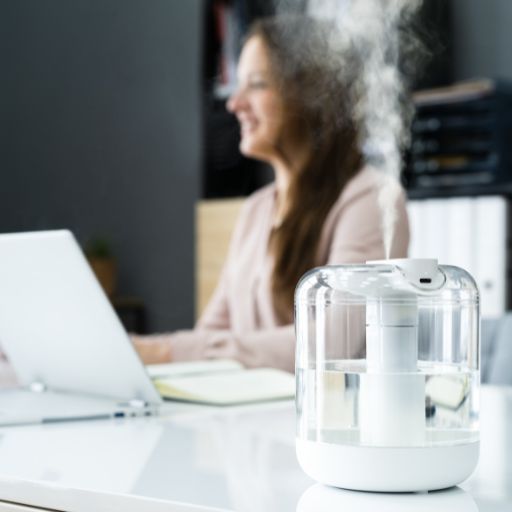Do Humidifiers Help With Allergies? (Mold, Pollen, Dust…)

Does it seem like you can’t get a handle on your allergies, no matter what the weather is outside? It could be that the humidity in your home is too low or too high and is exacerbating your symptoms. Living with allergies can be a serious issue, especially during the dry winter months.
Humidity is not a bad thing, but we do need to control it and make sure it does not get too high or low. In winter, this is especially important to make sure our homes are not too dry. The question then becomes, do humidifiers help with allergies?
Why Allergies Flare When Humidity Is Too Low or Too High

The winter months tend to bring a slew of indoor allergies for some people. The amount of moisture in the air causes mold spores to start to form in your home. More mold means more dust mites and pet dander which can cause aggravating allergies. Some people find that adding a humidifier to their home will help ease those allergies. So what’s the real relationship between humidity and your allergies?
Low Humidity
When humidity levels are too low, mold, mildew, and dust allergens dry out and become airborne. This can also dry out the nasal passages, making it easier for allergens to affect your lungs.
High Humidity
Mold and mildew love hot, humid environments—which means if there’s too much water in the air, there’s a breeding ground for both. Dust mites absorb water through their bodies and love humidity as well, and no one with allergies needs those around.
How Humidifiers Help Allergy Symptoms

Do humidifiers help with allergies? The answer is absolutely—in more ways than you might realize.
Easier Breathing
Keeping the air in your home moist means keeping your nasal passages clear of mucus, helping your body to purge allergens you are exposed to on a regular basis.
Less Itchy Skin
Dust mites can cause skin allergies as allergens themselves, but adding a humidifier to your home can help eliminate dust mites altogether, alleviating itchy skin.
No More Dry Eyes
Without proper levels of moisture in your home, mucosal membranes can gradually become dehydrated—including those in your eyes. Humidification can help take away dry eye symptoms from allergies by adding water back into the air.
Different Types of Humidifiers

When considering using an air humidifier for allergies, it’s important to know what types are available to figure out which is best for you:
- Steam vapor humidifiers use electricity to create steam that cools before leaving the machine but can be very hot to the touch.
- Central humidifiers are built into home air conditioning and heating systems to humidify the whole house rather than a more central location within it.
- Ultrasonic humidifiers use cool water and send a fine mist into the air through high-frequency sound vibrations that evaporate when released.
- Cool mist humidifiers also use cold water and don’t require heating, but use a fan to speed up the evaporation process.
What Type of Humidifier is Best for Allergies?
Though all types of humidifiers have their benefits, it’s believed that steam vapor humidifiers are the most effective because they heat the water they use, killing more mold and bacteria even before they are released into the air. While this type might in fact be best for allergies, choosing a humidifier that works with your situation and lifestyle is most important.
For example, if you have a family with many members that suffer from allergies, perhaps a central humidification system is right for you—or maybe you’ve got young children and pets, and would prefer a cooling humidifier rather than a heating one. No matter what your situation is, there is a humidifier out there to help with your allergies.
Common Questions About Humidifiers

Do Humidifiers Help With Dry Skin?
Yes, they can! Because humidifiers are putting moisture into the air you breathe and inhabit, you’ll take in some of that through your pores—helping add water to your skin.
Does a Humidifier Help With Pollen Allergies?
Humidifiers can help with pollen allergies by moistening the mucous membranes in your sinuses, helping you combat them even better.
Does a Humidifier Help With Dust?
Despite humidifiers’ not being able to remove dust from the air, they do expel mist that does weigh down dust particles, making them less airborne and you less uncomfortable.
Does a Humidifier Help With a Cough?
When you add water to your surrounding air, it gradually moistens your lungs and throat as you breathe, which can help with a cough. Cool mist humidifiers do this well by loosening any present mucus that may be causing your cough.
Does a Dehumidifier Help With Allergies?
If you live in a naturally humid climate and need to dry out the air you breath a bit in order to prevent mold and allergens from thriving, a dehumidifier might be the answer for you.
Is an Air Purifier or Humidifier Better for Allergies?
Both air purifiers and humidifiers can help relieve allergy symptoms — they just do it in different ways. Air purifiers remove allergens from the air, while humidifiers can help alleviate symptoms that are already present. Choose your system based on what allergies you and your family suffer from and the seasons and climate where you live, knowing that there really isn’t a wrong choice.
Tips for Relief from Allergies Using a Humidifier

Although using a humidifier is rather easy, caring for it correctly can preserve its life, your health, and prevent it from creating problems rather than solving them. Some tips for using and caring for your humidifier include:
- Use distilled or demineralized water.
- Change the tank’s water daily and clean it regularly.
- Use a hygrometer to ensure humidity levels remain between 30-50%.
- Change your filters no less than every three months.
Enjoy Life, Allergy Free
If you want to make yourself more comfortable during allergy season or even year-round—a humidifier can help with your allergies. The most important part is choosing the best humidifier for your home to help combat those annoying symptoms for you and your family, so you can spend less time each season near the tissues.
- Can You Use a Steam Mop On Karndean Flooring? - June 19, 2024
- How To Clean Unsealed Concrete Floors - June 7, 2024
- How to Clean Stamped Concrete - June 7, 2024

